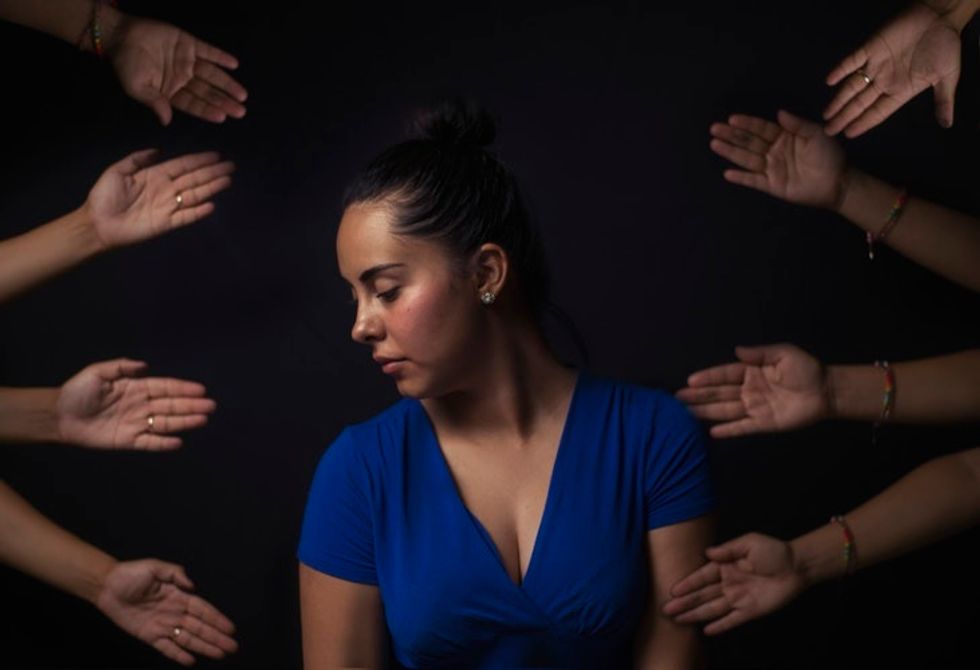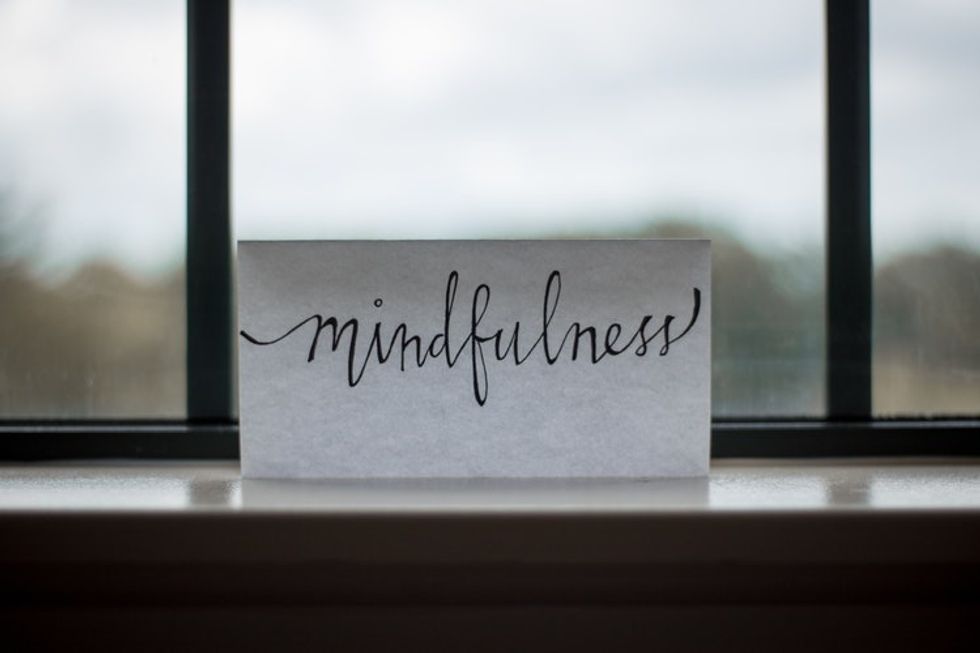It wasn't until my freshman year of college that I started to go to therapy. It was then that I was finally diagnosed with severe depressive disorder that had never been treated.
People around me were concerned for me because I was acting strangely. They noticed the cuts that I was able to hide from my mother. They reported me to the campus therapists and I started seeing someone there.
Of course, my sophomore year didn't start any better. I was sexually assaulted after moving back to campus and took an attempt on my life the night before Halloween. I was admitted to the hospital where I did different types of therapy and later started therapy at the mood treatment center before returning to school in the spring.
Now, the therapist that I see do a lot of work with coping skills and DBT skills. She teaches others skills to improve relationships, mood swings, and stress management. I recommend anyone struggling to see a therapist. They are amazing people and it is very helpful.
1. New therapies for Body and Mind.

https://unsplash.com/photos/6SNbWyFwuhk
When it comes to dealing with past trauma, my therapist helps me through my memories of the past.
"How do people get stuck in painful memories? The answer may lie in the body as much as the mind, according to several new therapies for trauma. Stress activates the autonomic nervous system, shifting the body into an emergency 'fight or flight' mode. Though necessary for survival, this process can go wrong if the trauma is overwhelming or there is not a safe way to process it afterward. Memories can become fragmented, stuck in different parts of the brain and the body, making it difficult to bring them together into a resolution. Several new therapies are helping people resolve traumatic memories by integrating their physical and psychological effects." http://www.moodtreatmentcenter.com/winter2017moodn...
2. Help find the right medication.
"Antidepressants don't treat depression on their own. They light a spark in the brain, but the right conditions need to be in place for that spark to catch on. We have a good idea of what those conditions are, from social supports to exercise, and are constantly learning about new ones like probiotics and the Mediterranean diet." http://www.moodtreatmentcenter.com/lifestyle/
Therapists can give you medications to make your daily lives better. They can also give you tips on natural treatment, devices, and different forms of therapy.
3. There are different types of therapies.

https://unsplash.com/photos/dtuM342uTmc
Cognitive behavioral therapy
Dialectical behavior therapy
Interpersonal Therapy
Mindfulness therapy
Magnetic Therapy
Family Therapy
CBASP Therapy
Brainspotting
Aromatherapy
Light therapy
Music Therapy
Dark therapy
Acceptance and Commitment
4. Help with sleep.

https://unsplash.com/photos/D4g64YUacLA
Honestly, since going to therapy and getting the right medication, I have been able to sleep a lot better. My therapists gave me a prescription but she also recommended something that's more natural aka melatonin.
"It's true: you can actually lose weight by getting good sleep, but what if you can't sleep? Many health benefits of sleep come from melatonin and this sleep hormone is also involved in metabolism. Melatonin declines with age, which is part of why weight goes up and metabolism goes down over time. Melatonin is also suppresses by evening light, so most people don't get enough even if they do sleep- a hidden cause of weight gain, insomnia, and mood problems." http://www.moodtreatmentcenter.com/winter2017moodn...
5. I learned to cope with my anxiety and panic attacks.
"Besides robbing life of pleasure, depression can bring a sense of dread that makes us avoid some things all together. Most often, the thing we avoid is other people."
6. Therapists give great advice.
Your therapists can help you get out of controlling situations. I was in an abusive relationship for 2 years and my therapists has helped me to move past it as well as give me tips on how to notice red flags so I can avoid being in that situation again.
7. Resources

https://unsplash.com/photos/OMXPrCAhxrE
From books to brochures to blogs to apps to skills, therapists can offer multiple resources. My therapists have given me different types of coping skills. The center that I go to offers multiple brochures on different things. From tips on how to have a good day to what types of foods improve my mental health.
8. Hope for Suicide

https://unsplash.com/photos/tnxRFtXI9dI
"Both therapy and medication can treat depression and reduce suicidal impulses. Cognitive behavioral therapy lowers the risk of suicide attempts by 50%. How? One way is by improving problem solving skills. People are more likely to jump to extreme solutions like suicide when they haven't learned or practiced other ways to solve problems. Another way is by rebuilding a social network. People are less likely to kill themselves when they feel connected to others. New skills, social connections, and a renewed sense of purpose help people ride the rough tides of life, but when those tides get really rough theres a risk that all that good work can be forgotten. The mind doesn't think very clearly in suicidal crisis. That's where one of the most powerful tools from this therapy comes in: a hope box.
http://www.moodtreatmentcenter.com/"
9. You learn to appreciate the little things.

https://unsplash.com/photos/DFtjXYd5Pto
Through therapy, my favorite thing to do is mindfulness. There are so many techniques that you can do and what not. Becoming aware of your surroundings and grounding yourself helps with depression, anxiety, panic, and ptsd.
10. To state the obvious, someone is getting paid to listen to you talk.

https://unsplash.com/photos/09SxeOdtlPE
Having someone to talk to helps so much. Especially when talking to therapists. They won't judge you and you can talk openly and freely.






















